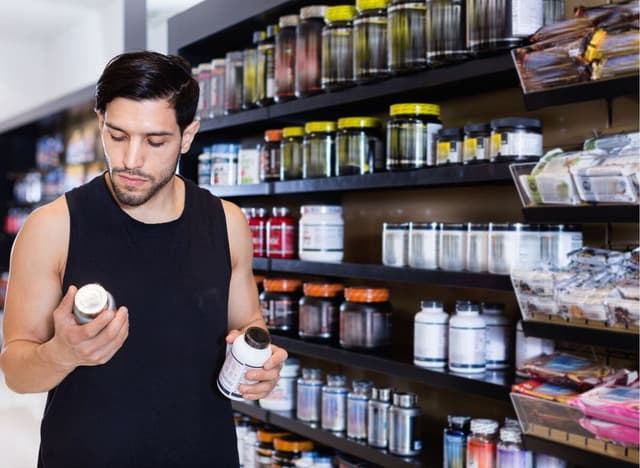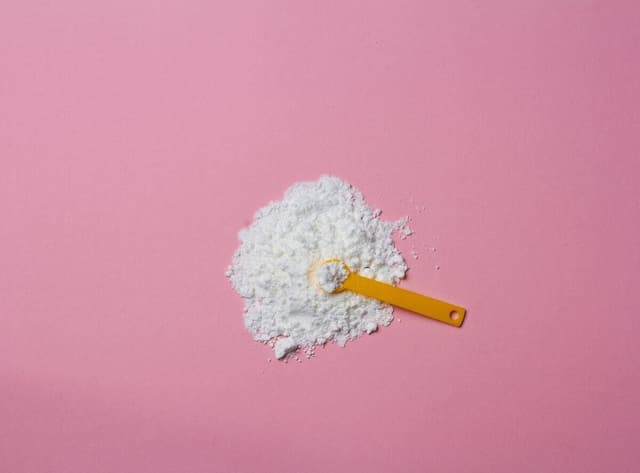Creatine and Water Retention: How to Minimize Bloating While Using the Best Creatine

January 30, 2024
If you've been hitting the gym hard and looking to elevate your performance, chances are you've considered adding creatine to your supplement stack. As one of the most researched and effective supplements on the market, the best creatine can help increase muscle mass, strength, and exercise performance. However, some users experience unwanted water retention and bloating. So, how can you enjoy the benefits of creatine without the puffiness? Let's dive in.
Understanding Creatine and Water Retention
Creatine is a naturally occurring compound found in muscle cells. It helps produce energy during high-intensity exercise or heavy lifting. When you supplement with creatine, your muscles store more of it, allowing you to perform better during workouts.
Why Does Creatine Cause Water Retention?
One common side effect is water retention. Creatine pulls water into your muscle cells, which is actually a good thing—it hydrates muscles and can lead to increased muscle size. However, this can sometimes make you feel bloated or heavier than usual.
- Intracellular vs. Extracellular Water Retention: The water retention from creatine is primarily intracellular, meaning it's inside your muscle cells. This contributes to muscle volume and is generally positive. Extracellular water retention (outside cells) can cause the bloating sensation.
- Rapid Loading Phases: Starting with a high dose, known as a loading phase, can spike water retention. Your body might not adjust quickly, leading to temporary bloating.
Understanding this mechanism helps in choosing the best creatine and using it effectively to minimize unwanted effects.
Common Misconceptions About Creatine Bloating
There's a lot of chatter in gyms and online forums about creatine and bloating. Let's set the record straight.
Myth 1: Creatine Makes You Fat
Creatine does not add fat to your body. The weight gain from creatine is due to increased water in the muscles and potential muscle growth from enhanced workout performance.
Myth 2: All Types of Creatine Cause the Same Amount of Bloating
Not all creatine supplements are created equal. Some forms may cause more water retention than others.
- Creatine Monohydrate: The most studied and commonly used form. While effective, it may cause more water retention in some people.
- Buffered Creatine and Creatine Hydrochloride: These forms are designed to reduce water retention and may be the best creatine options for those concerned about bloating.
Myth 3: Bloating Is Permanent
Any bloating experienced is typically temporary. As your body adjusts to the supplement, water retention often stabilizes.
Practical Tips to Minimize Bloating While Using Creatine
Now that we've tackled the myths, let's focus on actionable steps to help you minimize bloating.
1. Choose the Right Type of Creatine
Opt for creatine forms less likely to cause bloating.
- Creatine Hydrochloride (HCl): Known for better solubility and absorption, potentially reducing water retention.
Our Top Recommendations

Optimum Nutrition Micronized Creatine Monohydrate Powder
Micronized for easy mixing, supports muscle growth and endurance.
See on Amazon$0.35 per 5g serving

Nutricost Creatine Monohydrate Micronized Powder
Third-party tested, non-GMO, 5g of pure creatine per serving.
See on Amazon$0.2 per 5g serving

NSF Certified, supports muscle power and recovery.
See on Amazon$0.46 per 5g serving

ProMix Creatine Monohydrate Powder
Micronized, additive-free, ideal for performance and recovery.
See on Amazon$0.36 per 5g serving

NOW Foods Sports Nutrition Unflavored
100% pure creatine, GMP certified, boosts strength and endurance.
See on Amazon$0.2 per 5g serving
- Micronized Creatine: Smaller particles make it easier to dissolve and may improve absorption.
By selecting the best creatine for your body, you can minimize side effects.
2. Skip the Loading Phase
Instead of starting with a high dose, begin with a standard maintenance dose (3-5 grams per day). This reduces the sudden influx of creatine, allowing your body to adjust gradually.
3. Stay Hydrated
Drinking plenty of water helps balance fluid levels in your body.
- Hydration Tips:
- Aim for at least 8 glasses of water per day.
- Monitor the color of your urine; pale yellow indicates good hydration.
4. Watch Your Diet
Limit sodium intake, as high sodium can exacerbate water retention.
- Reduce Processed Foods: These are often high in sodium.
- Increase Potassium-Rich Foods: Foods like bananas and spinach help balance sodium levels.
5. Consistent Exercise
Regular physical activity promotes circulation and helps reduce water retention.
- Incorporate Cardiovascular Workouts: Activities like running or cycling can help.
- Maintain a Regular Routine: Consistency is key to seeing results.
6. Consult a Professional
If bloating persists, speak with a healthcare provider or a nutritionist to tailor your supplement regimen.
Conclusion
Creatine is a powerful supplement that can boost your fitness journey when used correctly. By choosing the best creatine for your needs and following practical steps to minimize water retention, you can enjoy the benefits without the bloat. Remember, any initial water weight is often a sign that the creatine is working to hydrate your muscles, leading to better performance and gains in the long run.
Ready to take your workouts to the next level? Consider these tips and find the best creatine that suits your body. Don't let the fear of bloating hold you back from reaching your fitness goals.






